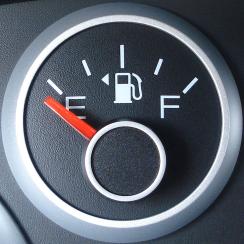
- By: News
- 0 comment
Fuel hikes will be implemented across the board from Wednesday, but they would have been much worse if the fuel levy was not lowered, according to the Department of Mineral Resources and Energy.
Mineral Resources and Energy Minister Gwede Mantashe announced the adjustment to fuel prices on Monday.
The hikes, which kick in on Wednesday, 6 April, are as follows:
- Petrol – (both 93 ULP and LRP) – up 28 cents per litre (c/l).
- Petrol (both 95 ULP and LRP) – up 36 c/l.
- Diesel (0.05% sulphur) – up 152.56 c/l.
- Diesel (0.005% sulphur) – up 168.56 c/l.
- Illuminating paraffin (wholesale) – up 266.00 c/l.
- Single maximum national retail price for LP gas: – up 355 c/l.
- Maximum LP gas retail price – up 250 c/l.
Last week, Finance Minister Enoch Godongwana announced that the general fuel levy would be lowered by R1.50 per litre to the end of May in order to provide some relief to consumers who are feeling the effects of rising fuel prices amid the conflict between Russia and Ukraine.
This means the fuel levy will amount to 244 c/l for petrol and 230/cl for diesel.
The increases in petrol would have been R2/l and diesel R3/l if there had been no intervention.
In a statement, the minister unpacks several reasons for the fuel hikes.
Among these is that Brent crude oil increased from $96.47 per barrel to $109.37 during the period under review. The price of Brent crude is affected by supply issues. These include sanctions on Russia – an exporter of oil and OPEC and non-OPEC members limiting their fuel supply despite demand increasing globally. Attacks by Yemen rebels on storage facilities in Saudi Arabia have also caused supply disruptions.
In its statement, the Department of Mineral Resources and Energy also highlighted that there is also a shortage of diesel supply due to lower exports from Russia. As a result, the rate of price increase in diesel is higher than that of petrol.
SOURCE:
Time to fill up – fuel price hikes across the board this Wednesday | Fin24 (news24.com)



